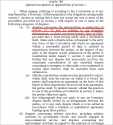Analysts said the maritime nuclear power platforms will play an important role in China's long-term South China Sea strategy.
China edging closer to first maritime nuclear station
By Bai Tiantian (
) 03:45, April 22, 2016
File photo
China is edging closer to building its first maritime nuclear power platform, which could sail to remote waters and provide stable power to offshore projects.
Analysts believe that the platform, once accomplished, could significantly boost the efficiency of the country's construction work on islands in the South China Sea. In a phone interview with the Global Times on Thursday, Liu Zhengguo, director of the general office of the China Shipbuilding Industry Corporation (CSIC), China's leading shipbuilding group in charge of designing and assembling the platforms, said the company is "pushing forward the work."
"The development of nuclear power platforms is a burgeoning trend," Liu said, when asked to comment on a previous media report that China plans to build 20 maritime nuclear power platforms.
"The exact number of plants to be built [by CSIC] depends on the market demand," he said, without confirming or denying the reported number. "Judging by various factors … the demand is pretty strong."
Liu said that the construction of the platforms is "based on mature technology." He emphasized that the plants are mainly for civilian use, such as providing electricity for oil drilling platforms.
According to a Wednesday report published by eworldship.com, a Shanghai-based shipbuilding industry website, Bohai Shipbuilding Heavy Industry Company (BSHIC), a ship assembly enterprise under the CSIC, will be responsible for building China's first maritime nuclear power platform, and the CSIC will build about 20 such platforms "in the future."
The report said the National Development and Reform Commission has approved this, and the Bohai company convened on Tuesday with Liaoning Provincial Economy and Informatization Commission, Huludao Municipal Economy and Informatization Commission, the safety inspection team of CSIC's nuclear safety department and Wuhan Second Institute of Ship Design, also known by its code name Institute 719, to discuss the location and relevant viability issues of the construction.
According to the website, a group of experts has reviewed and discussed the technical plan on the construction of the platform proposed by Institute 719, which is also under the CSIC, and reached a unanimous conclusion.
Liu did not confirm or deny the existence of such a meeting.
The construction of the first maritime nuclear power platform, which serves as a demonstration project, is expected to be completed by 2018 and be put into use by 2019, China Securities Journal reported in January.
Reliable power source
Analysts said the maritime nuclear power platforms will play an important role in China's long-term South China Sea strategy.
Li Jie, a Beijing-based naval expert, told the Global Times on Thursday that the platforms could provide reliable power for lighthouses, seawater desalination, rescue and relief equipment, defensive weapons and airports and harbors on islands in the South China Sea.
"Normally we have to burn oil or coal for power. Given the long distance between the Nansha Islands and the Chinese mainland and the changing weather and oceanic conditions, transporting fuel could be an issue, which is why developing the maritime nuclear power platform is of great significance," Li said.
According to previous media reports, Institute 719 has proposed two designs for the maritime nuclear power platform. The first is a floating nuclear power plant and the second a submersible nuclear power plant that could work under water.
The CSIC has also been working with China General Nuclear Power Corp, a leading atomic power company in China. The latter is working on a small marine nuclear propulsion reactor, called ACPR50S. The 200-megawatt reactor can be installed inside a ship and is expected to be commissioned by 2020.
Impact of natural disasters
Wu Zhong, general manager of an asset management company under the CSIC, previously told the media that the market share for the maritime nuclear power platform is estimated at over 100 billion yuan ($15.45 billion) just for offshore oil exploration.
He said that the Bohai Bay alone will require 50 billion yuan worth of nuclear platforms per year and the demand for the South China Sea can only be greater.
Zhu Hanchao, deputy chief engineer at Institute 719, told the China Securities Journal that one platform will cost about 3 billion yuan to build and will be able to collect a total of 22.6 billion yuan by selling electricity in the 40-year life span.
Zhu declined to be interviewed by the Global Times on Thursday.
Tang Bo, an official at the National Nuclear Safety Administration, told the Global Times on Thursday that the administration is working on formulating relevant nuclear security regulations regarding the platforms, although some preliminary conclusions have been drawn and are awaiting verification.
In particular, the parameters to assess the impact exerted by natural disasters and accidents in the sea on the plants has yet to be decided, Tang said, citing the height of waves as an example.





